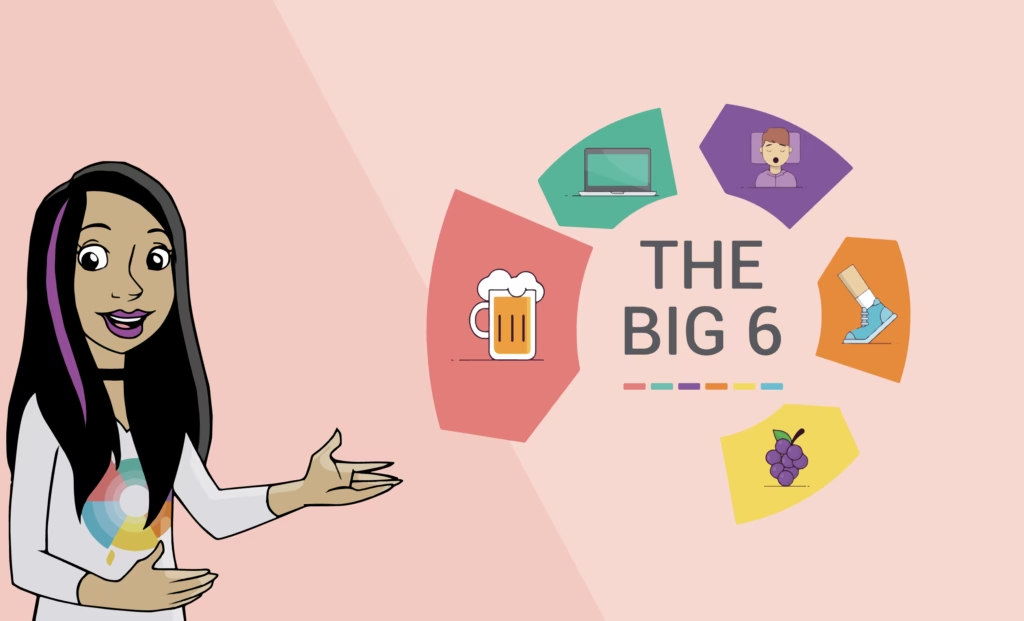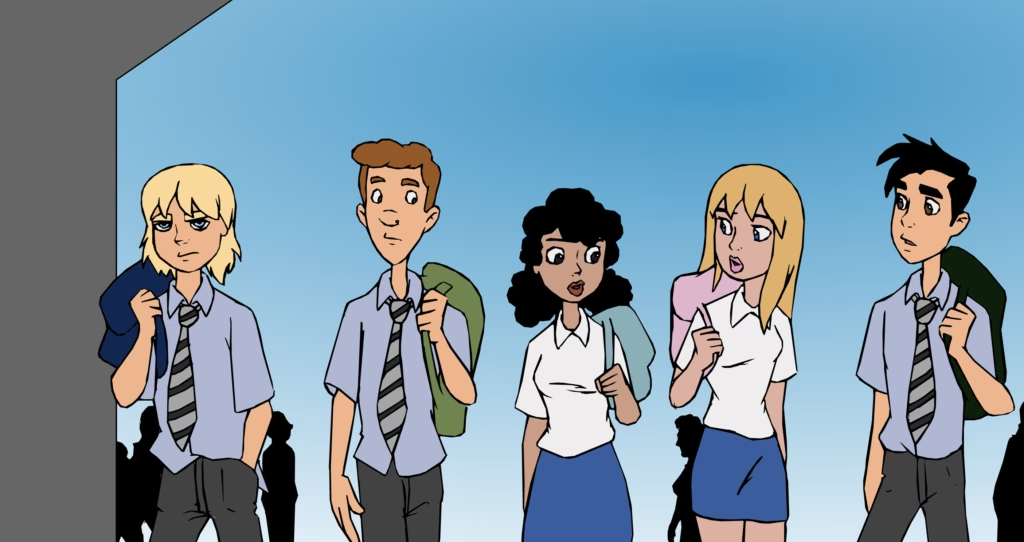
We have some exciting news to share. The Elaine Walters Foundation is partnering with OurFutures to provide high schools in low socioeconomic areas with our evidence-based health programs. We can’t wait to make a positive impact to the lives of young people through this funding.
Socio-economic status (SES) plays an integral role in key life outcomes, whereby people experiencing greater socioeconomic advantage tend to experience better health outcomes. While the relationship between SES and youth substance use is complex and involves a multitude of various influencing factors, people experiencing socio-economic disadvantage typically have higher rates of substance use. You can read more about this relationship here.
People living in low SES areas often face numerous barriers that can increase the risk of youth substance use. These may include: lower e income, higher unemployment, limited access to affordable healthcare, reduced parental supervision and chronic stress related to housing and finances.
Though school-based education is just one part of the picture, providing equitable, evidence-based prevention is critical to empower young people with the knowledge and skills they need to make informed decisions and minimise harms. However, schools in lower-income areas may face barriers that limit their access to high-quality, evidence-based drug and wellbeing education.
This is why we’re partnering with The Elaine Walters Foundation.
They will fund 8,000 students from schools in lower socio-economic areas to access our programs over the next year. This will have a real impact and change the lives of these students for the better.
Using the evidence from one of our extensive randomised controlled studies, the impact of 8,000 Australian high school students having access to our prevention programs would result in an 80% reduction in hazardous alcohol and drug use among this population.
Though this data doesn’t specifically account for socio-economic status, it shows what a difference a partnership like this can make in the lives of young people.
About The Elaine Walters Foundation (EWF)
Who was Elaine Walters?
Elaine Walters OAM (1938-2024) was an Australian author, teacher, and advocate renowned for her unwavering commitment to drug education and social justice. Over a career spanning four decades, she emerged as a leading voice in illicit drug education and prevention, particularly among young people.
Elaine’s journey into drug research and community support began in the early 1980s, sparked by a talk-back radio program where distraught parents of children who used drugs, shared their painful experiences. Moved by their stories, she initiated support groups for affected parents, recognising the profound impact of drug dependence on individuals and communities.
In 1988, she was awarded a Churchill Fellowship to study marijuana, where she found substantial evidence that prolonged heavy use could lead to lasting personality changes, mental health disorders, memory impairment, and general malaise. While in Europe, Elaine also conducted further research at the United Nations Office on Drugs and Crime (UNODC) in Vienna, deepening her understanding of international drug policy and its real-world impacts. Her findings informed several influential publications, which cover her extensive research, mainly focusing on drug-related harms and policy critiques.
In the preceding 10 years before her death in 2024, Elaine set up the Elaine Walters Foundation to support causes she was passionate about.
Harm-minimisation and the Foundation today
Elaine’s extensive work laid the foundation for many important conversations around public health, policy, and prevention. While she championed a strong prevention-based stance, she was skeptical of harm-minimisation approaches, arguing that they risked normalising drug use and underestimated the long-term consequences.
OurFutures Institute holds deep respect for Elaine’s contributions and her unwavering advocacy. Today, we take a different stance when it comes to harm-minimisation. Our approach is grounded in the latest research and evidence-based public health practices that incorporate prevention, harm-reduction, and early intervention. We give young people accurate, non-judgmental information about drugs and the harms involved – empowering them to make safer and more informed decisions.
The harm-minimisation approach in our programs emphasises that not using drugs and other substances such as alcohol and e-cigarettes is the safest option. However, it also recognises that a minority of people will do so. For this reason, our programs also provide strategies to help minimise drug-related harm. Earlier “just say no” campaigns for drug prevention were unsustainable, and there is no research to suggest it works. For long-term efficacy, students need to be equipped with the knowledge, tools and skills to understand and reduce harms, while also taking into account peer influence, and normative education to address misconceptions of use.
Today, the Elaine Walters Foundation continues her legacy by supporting medical research, education, drug prevention, social justice, and animal welfare. The Foundation acknowledges that approaches to drug education have evolved and, like OurFutures, supports harm-minimisation as part of a comprehensive, evidence-based approach. “We’re carrying on Elaine’s legacy, but in a more evidence-based way,” said Jason Elderhurst PSM, Chair of the Elaine Walters Foundation. “It’s important to us that we support causes that she would have supported, with a focus on evolving evidence-based and outcomes-based programs. So we’re continuing her mission, but with a slightly different approach.”
This evolution reflects a shared commitment to the outcome of reducing drug-related harms in communities, even as the strategies and perspectives may differ.
We honour Elaine’s work and the impact she had in the drug prevention field, and are so grateful to be partnering with the EWF to support students from high schools in lower socio-economic areas, so that they don’t miss out on the gold-standard, evidence-based education that everyone deserves.
Author: Francesca Wallis
With expert review by researchers at the Matilda Centre for Research in Mental Health and Substance Use.







